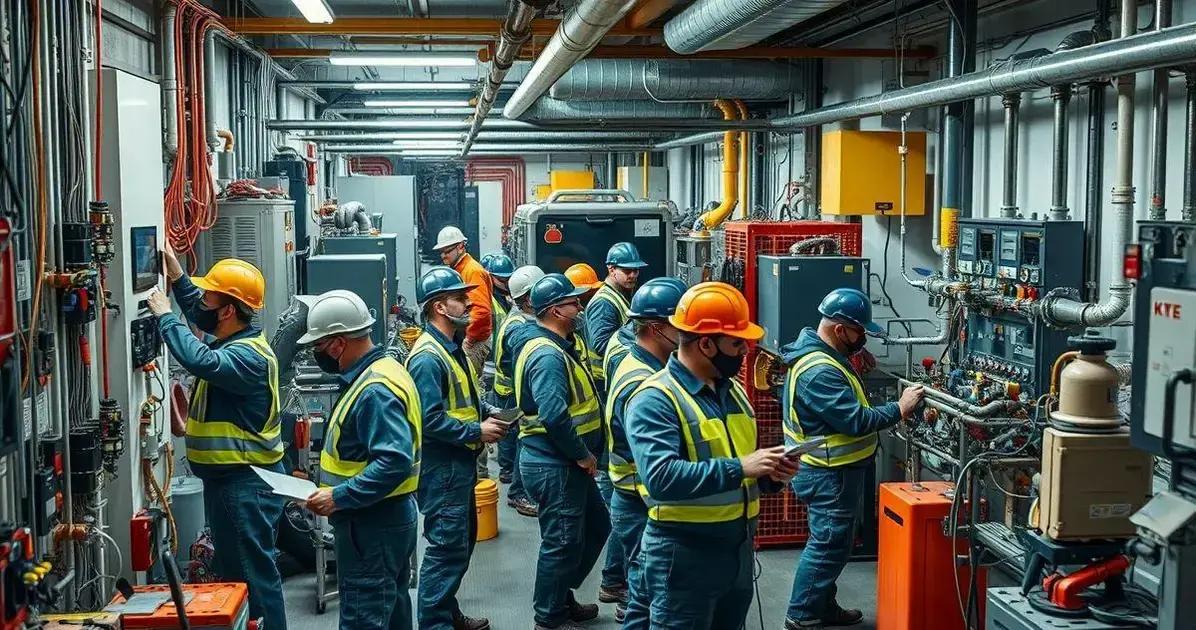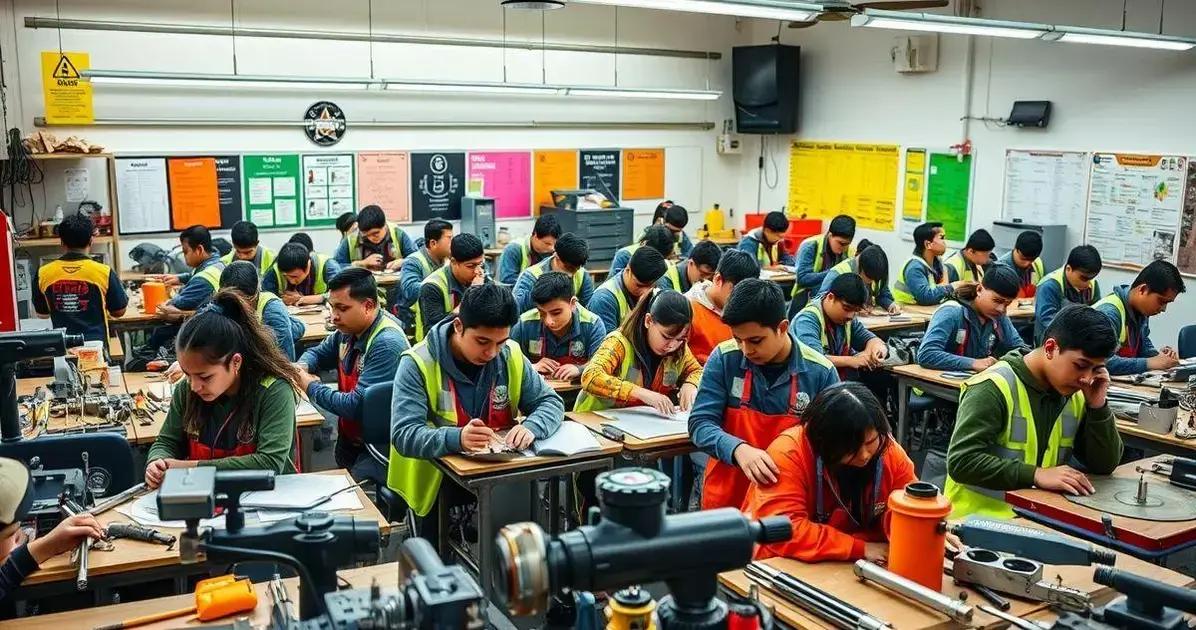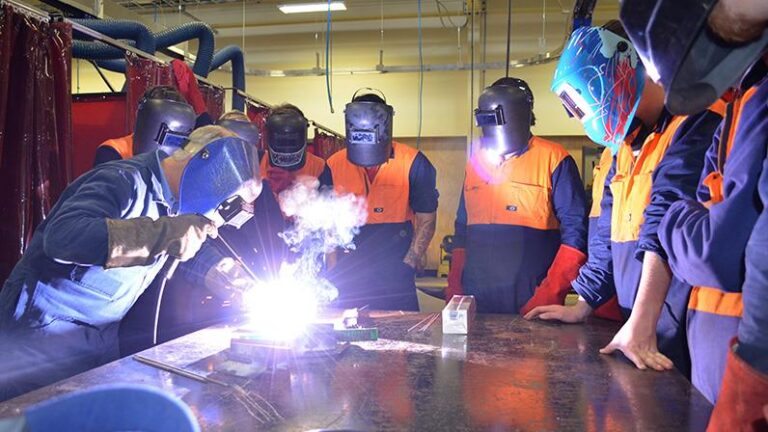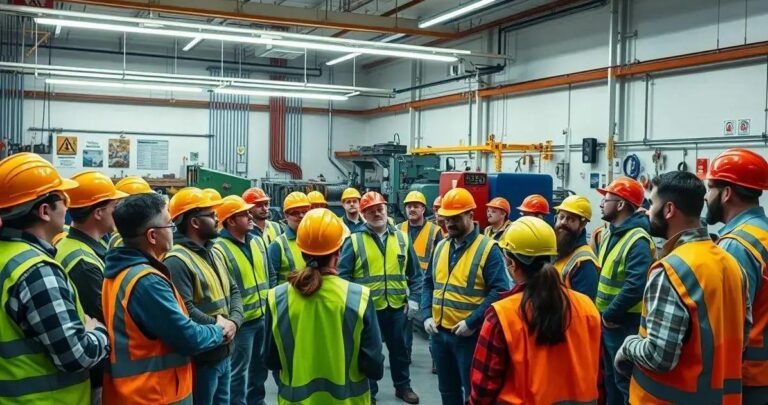Skilled Trades Jobs: Uncover Top Opportunities and Career Paths
Anúncios
Skilled Trades Jobs are more than just careers; they are pathways to prosperous futures. In today’s rapidly changing job market, the demand for skilled trades professionals has surged, making it an opportune time to dive into this field. Whether you’re interested in becoming an electrician, plumber, or welder, skilled trades offer a diverse range of career options that cater to various interests and skill sets. As you explore this article, you’ll uncover the essential skills, education pathways, and high-demand roles that make skilled trades a smart choice for a sustainable career. Let’s delve into the world of skilled trades and discover the opportunities that await!
Understanding Skilled Trades Jobs: A Comprehensive Overview
Skilled trades jobs encompass a variety of careers that require specialized abilities and hands-on work. These jobs are pivotal in numerous industries, from construction to manufacturing. Uniquely, skilled trades do not typically require a traditional four-year college degree, making them accessible to many.
These occupations range from electricians and plumbers to carpenters and welders. Each role demands a unique set of skills and provides opportunities for hands-on learning and career advancement.
Why Choose Skilled Trades?
Many choose skilled trades due to job stability and lucrative salaries. With a growing demand for skilled workers, tradespeople enjoy job security and career growth.
Career Pathways and Development are plentiful within skilled trades. Starting from an apprenticeship, workers can climb ladders to become masters of their trade or even entrepreneurs starting their own businesses. This allows for a degree of autonomy not commonly found in other fields.
The shortage of skilled tradesworkers is a pressing issue, highlighting the importance of these roles. With many tradespeople retiring, the demand for new talent is high, making it a prime time to enter this field.
High-Demand Skilled Trades Jobs in Today’s Market

The demand for skilled trades jobs is soaring in today’s market. Industries are eager to fill positions with skilled electricians, plumbers, and HVAC technicians. These professionals are essential in maintaining and building infrastructure, ensuring systems run smoothly.
Electricians are particularly in demand with their ability to install and manage electrical systems in homes and businesses. As technology advances, the need for skilled electricians grows, providing numerous opportunities.
Plumbers
are pivotal in ensuring safe water supply and sanitation. Their expertise is required in residential and commercial settings, with new construction projects driving demand.
HVAC technicians maintain heating, ventilation, and air conditioning systems. Their role is crucial for energy efficiency and comfort, making them valuable in homes and offices.
The construction industry also sees a surge in demand for carpenters who build, install, and repair structures. Their skills are needed for both new constructions and renovations.
With retiring workers creating further openings, these high-demand jobs offer stability and growth potential. Pursuing a career in skilled trades can lead to financial security and job satisfaction.
Essential Skills Needed for Skilled Trades Careers
To succeed in skilled trades careers, workers need various essential skills. Technical abilities are crucial, as most trades require hands-on expertise and precision. For instance, electricians must understand electrical systems, while carpenters rely on construction knowledge to craft and build.
Problem-solving skills are vital in this field. Tradespeople often encounter unexpected issues, requiring innovative solutions to keep projects on track. This ability enables workers to address challenges efficiently.
Attention to Detail
is another critical skill in skilled trades. Precision ensures quality work and safety, which is why trades like plumbing and welding demand meticulous attention.
Moreover, physical stamina is important. Many trades involve manual labor, lifting, and sometimes working in challenging environments. Maintaining good physical health can improve performance and reduce fatigue.
Communication skills are important for collaboration and customer satisfaction. Clear communication helps keep team members aligned and clients informed, enhancing project outcomes.
These skills, combined with dedication and continuous learning, make for a successful career in skilled trades. Developing and refining these skills opens doors to advancement and greater responsibility.
Training and Education Pathways for Skilled Trades

Training and education pathways for skilled trades are diverse and offer various options for aspiring tradespeople. Many careers in this field begin with apprenticeships, which combine on-the-job training with classroom instruction. This approach allows individuals to gain practical experience while learning essential concepts.
Technical and vocational schools provide formal education in specific trades. These institutions offer programs that cover theoretical knowledge and hands-on skills, crucial for preparing students for the workforce. Programs usually focus on trades like welding, electrical work, and carpentry, providing a solid foundation for a successful career.
For those seeking a more advanced understanding, some trades offer
certification programs
. These programs enhance skills and knowledge, making tradespeople more competitive in the job market. Additionally, some trades require licensing, which ensures workers meet industry standards and regulations.
The flexibility of these pathways allows individuals to choose the route that best fits their goals and learning style. Continuous education and training are encouraged within skilled trades to keep up with advancements and enhance job security.
Companies often offer training programs to improve employees’ skills, fostering growth and skill refinement. These company-led initiatives drive innovation and efficiency in the trades.
The Future of Skilled Trades Jobs: Trends and Opportunities
The future of skilled trades jobs holds exciting trends and opportunities. One key trend is the increasing integration of technology in trades. Automation and digital tools are transforming how tradespeople work, from advanced machinery to software that enhances project management.
As industries evolve, the demand for energy-efficient and sustainable solutions grows. Green technology is becoming mainstream in construction and maintenance, creating new avenues for eco-friendly practices. This shift is opening opportunities for tradespeople skilled in sustainable technologies and methods.
Demographic changes
are also impacting the future of skilled trades. An aging workforce means there’s a high demand for younger workers to fill roles left by retirees. This generational change is vital for injecting new energy and ideas into the industry.
The global economy’s fluctuations influence job demand. A recovering economy often sees a boost in construction and renovation projects, increasing the need for tradespeople. These cycles present opportunities for growth and career advancement.
Additionally, the push for diversity in the workplace fosters an inclusive environment in trades. Encouraging a wider range of backgrounds and experiences brings fresh perspectives and innovation.
With these trends, trades professionals will continue to be essential in shaping our modern world. Adaptation and continuous learning are key to harnessing these future opportunities.
How to Start a Career in Skilled Trades Jobs

Starting a career in skilled trades jobs is an achievable and rewarding goal. Begin by researching the various trades to find one that matches your interests and strengths, whether it’s as an electrician, plumber, or carpenter.
Education and training are essential steps. Enroll in a vocational or technical school that offers courses related to your chosen trade. These programs provide the foundational knowledge and hands-on experience needed to excel in the field.
Consider participating in an
apprenticeship
program. Apprenticeships offer on-the-job training supervised by experienced professionals, allowing you to earn while you learn. This practical approach helps develop skills essential for tackling real-world challenges.
Networking with industry professionals can open doors to opportunities and provide insights into the trade. Attend events and join professional organizations to connect with others in your field.
Certification and licensing may be required in some trades. These credentials validate your skills and can enhance your job prospects. Research your state’s requirements to ensure compliance.
By taking these steps, you can lay a strong foundation for your career in skilled trades. Continuous learning and adaptation are key to thriving in this dynamic field.
Unlocking the Potential of Skilled Trades
Exploring a career in skilled trades jobs offers numerous opportunities for growth and stability. The demand for skilled professionals continues to rise, driven by technological advancements and an aging workforce.
Embracing hands-on education through apprenticeships and technical programs is the key to success. These pathways equip you with the practical skills and knowledge needed to excel in today’s competitive job market.
With the integration of green technologies and increased focus on sustainability, the trades are evolving to meet modern demands. This creates a dynamic landscape rich with possibilities for those who are prepared to adapt and innovate.
Ultimately, a career in skilled trades provides more than just a job; it offers the chance to contribute meaningfully to society while enjoying job security and the potential for financial growth. Embrace the journey, and uncover the opportunities that await in the world of skilled trades.
FAQ – Frequently Asked Questions about Skilled Trades Jobs
What are skilled trades jobs?
Skilled trades jobs involve manual work and require specialized knowledge and training in fields like electrical work, plumbing, carpentry, and more.
Why are skilled trades in high demand?
Skilled trades are in high demand due to an aging workforce, increasing construction projects, and the need for technology-driven solutions in industries.
What skills are essential for a career in skilled trades?
Key skills include technical expertise, problem-solving, attention to detail, physical stamina, and good communication abilities.
How can I start a career in skilled trades?
Start by researching trades of interest, enroll in vocational training or apprenticeships, and gain certification if required.
What training pathways exist for skilled trades?
Training pathways include vocational schools, apprenticeships, certification programs, and company-led training initiatives.
How is the future of skilled trades shaping up?
The future is bright with integration of green technologies and digital tools, creating new opportunities and trends in the industry.






